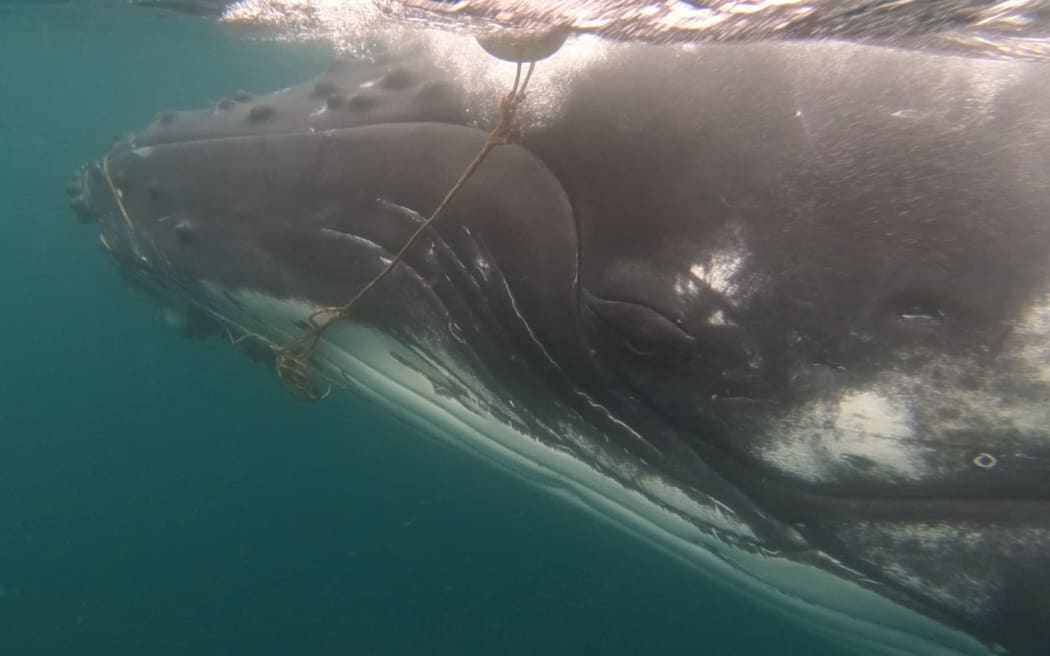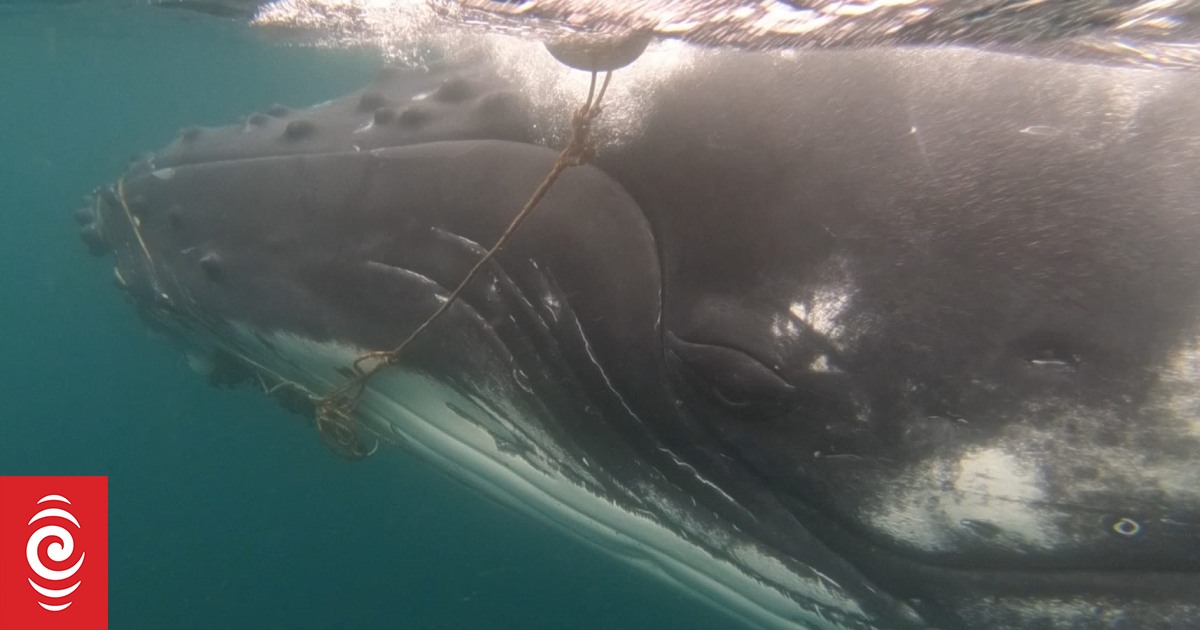
A humpback whale is seen tangled in a cray pot line during an earlier incident in 2018.
Photo: Supplied / DOC / Cat Peters
Efforts are continuing to find a humpback whale off the Northland coast with a cray pot line tangled around its tail.
The whale was first spotted from a plane at the entrance of Doubtless Bay, east of Kaitāia, last week.
Cat Peters, who heads the Department of Conservation’s whale disentanglement team, said extensive searches from land, sea and sky since then had so far failed to locate the whale.
She said it could be anywhere between the Far North and Auckland by now.
From the confirmed sighting last Wednesday, Dr Peters believed only the tail was tangled and the whale’s pectoral fins and head were free.
“That means it would be able to breathe and therefore survive for a while, perhaps weeks or months, with the line around it. That said, we want to work to eliminate its distress as soon as possible.”
She appealed to the public to report any sightings of whales that could be in distress or entangled by phoning the 24-hour hotline 0800 DOC HOT (0800 36 24 68).
At the time of the initial sighting, the whale was accompanied by a larger humpback which did not appear to be tangled.
Peters advised anyone who spotted the whale against trying to cut it free themselves.
It was a dangerous task best left to trained teams using specialised equipment.
She also urged boaties not to get close to the whale or do anything that would disturb or harass it.
However, they could assist the rescue team by staying with the whale, monitoring it, taking photos or video, and keeping DOC informed of its exact location.
“The whale will likely be in some distress, but it is moving and is not any immediate danger … The priority is people’s safety and ensuring disentanglement is carried out safely by our trained team.”
Peters said attempts to free entangled whales were carried out only when it was safe to do so, which meant having sufficient daylight hours to complete the task and sea conditions that were not too rough.




